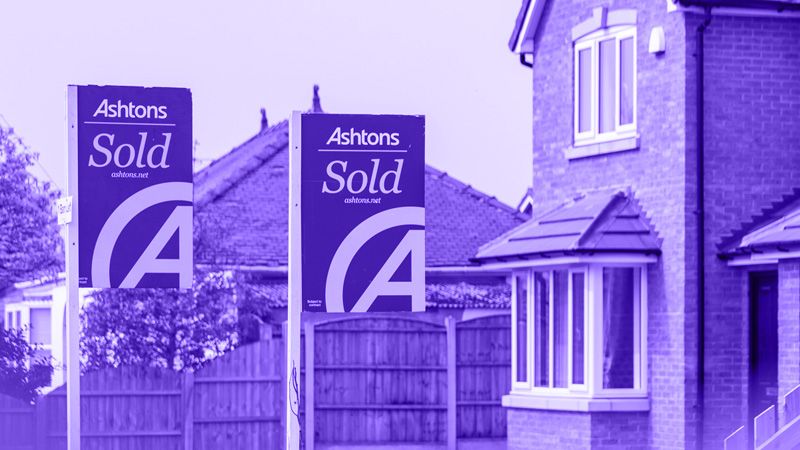Since 2022, the increased rates introduced by the Bank of England has impacted mortgage affordability for the average Brit.
Hikes have made it almost impossible for some trying to get onto the property ladder for the first time or working with a tighter budget.
The solution? Mortgages with a guarantor!
Guarantor mortgages are certainly not new to the UK market, and they’re best known for providing first-time and budget buyers with inroads to the property world.
Getting a mortgage isn’t easy for everyone, especially if your earnings don’t reach the minimum requirement, the accrued savings for a deposit aren’t high enough, or you have a less-than-stellar credit rating or haven’t built one up yet.
While a guarantor loan might seem like a financial saviour, it doesn’t come without risks and challenges – for both buyer and guarantor.
To better understand if a guarantor loan is the most viable option, here’s what you need to know…
Guarantor Loans – What Are They?
Guarantor loans allow applicants to use a relative to co-sign the mortgage agreement to act as a guarantor for the debt.
This means that the guarantor will agree to settle the outstanding amount if the home buyer defaults on their mortgage payments.
Getting someone to agree to be a guarantor is tricky, as they will be required to provide collateral, usually in the form of their accrued savings or their own home or assets.
As a guarantor, there’s a lot of risk involved. While they are required to cover costs that the home buyer cannot, they will never own equity in the property.
Types of Guarantor Loans Available in the UK
More mortgage providers are developing products that allow close family members and parents to assist borrowers in qualifying for a mortgage.
Here’s an overview of each product type for your consideration.
Family Springboard Mortgages, aka Deposit Boost Mortgages
These mortgages make it possible for family members to help the buyer by offering their savings as collateral for the mortgage.
Some well-known financial services providers offer this type of mortgage, including Family Building Society and Barclays Bank.
While each lender has different requirements, they usually work similarly.
Related mortgage guides:
- What to do if your mortgage expires.
- Disadvantages of paying your mortgage off.
- Best mortgage brokers in the UK.
- Should you pay off your mortgage early?
- 50-year mortgages UK.
Some institutions allow first-time buyers to get a mortgage with zero deposit if a family member puts 10% of the property value into a linked savings account.
After a set number of years, and all mortgage instalments have been paid according to the mortgage agreement, the family member can receive their 10% deposit back with the added benefit of interest included.
If the home buyer cannot afford their payments, the 10% can be used to cover costs.
Joint Borrower Sole Proprietor Mortgage (JBSP)
Joint borrower sole proprietor mortgages are very sought-after. This type of mortgage requires a family member to share liability for the mortgage.
While only the buyer is listed on the property deeds, the family member will be jointly liable for the debt.
Not being listed on the deeds makes it simpler for the assisting family member to avoid the cost of tax, stamp duties, and other fees often associated with owning equity in a second home.
Even with a co-signatory, the home buyer can benefit from the exemptions offered on stamp duties for first-time buyers.
The costs of a JBSP are best discussed with a mortgage broker, but in most instances, these loans are offered at the standard rates of the lender and based on the loan to value.
Not all lenders offer this type of mortgage as it’s quite a niche product that could be impacted by the age of the family member offering assistance, and of course, there’s risk to all parties.
Advantages of Acquiring a UK Guarantor Mortgage
One advantage for guarantors is that a parent or close family member can help a loved one buy their first home without having to gift them money to use as a deposit.
For some people who already own their own home or have a large savings, this is the ideal situation.
Guarantors aren’t expected to pay anything towards the mortgage if the buyer keeps on top of their monthly repayments.
Any cash that the guarantor offers as collateral for the mortgage is given back to them after the arrangement comes to an end.
It’s only used if the buyer defaults on the mortgage payments or can no longer afford the instalments.
Is A Guarantor Mortgage the Right Fit for Me?
Guarantor mortgages aren’t well suited to everyone.
If you’re a first-time buyer and don’t have a big enough deposit or your income isn’t high enough to meet the stipulated requirements, a guarantor mortgage may be the best choice for you.
Some buyers have no credit history because they have never been in debt or have a poor credit history – in both of these instances, guarantor mortgages can be beneficial.
In such instances, the guarantor will need to be financially stable and have a good credit history in order for the mortgage to be granted.
One of the biggest perks of guarantor mortgages is that you can possibly borrow 100% of the property value instead of having to put down a hefty deposit.
Who Can You Ask to Be a Guarantor On Your Mortgage?
Some terms and conditions govern guarantor mortgages.
For instance, the guarantor must be a parent or close family member.
You’ll need to ask a family member who is financially stable with a good credit history, as the lender will assess their creditworthiness as if they are the home buyer.
In most instances, the guarantor must meet all the lender’s qualifying criteria.
Sometimes, the rules are slightly different – as with offset and family springboard mortgages.
Lenders pay close attention to the guarantor’s financial situation to ensure that the person signing surety on the mortgage can realistically afford to cover the costs of the entire mortgage if the buyer defaults on the loan or can no longer afford it.
If you’re wondering if retired parents can be your mortgage guarantor, the answer is yes.
In such instances where the guarantor is retired, the mortgage provider will assess their savings and assets that they can provide as collateral along with their current credit rating and pension income, if any.
Some lenders see age as a factor when assessing whether a guarantor is fitting or not.
Before applying for a guarantor loan with a retired guarantor, it is best to consult with a professional mortgage broker to see the likelihood of being accepted and also to ensure you’re considering all of your options.
What Are the Risks of Guarantor Mortgages for Both Buyer and Guarantor?
The table below presents some of the risks faced by each party:
- Risks to the Guarantor Risks to the Buyer
- Responsible for the debt if the buyer defaults on the agreement
- If a guarantor passes away, the buyer must find a new guarantor
- Responsible for the fees on late payments
- If a 100% mortgage is acquired and house prices dip, the buyer could be in negative equity in the home.
- If the property is repossessed and sold to defray costs, the guarantor is responsible for the shortfall between the sale price and outstanding mortgage amount.
- The buyer is financially linked to the guarantor for the foreseeable future, which could make family ties awkward in the long run.
- Any property or assets offered as collateral are at risk if the mortgage amount cannot be covered.
- Savings could be lost if used as security, and the home buyer cannot pay the outstanding mortgage
- Could impact the guarantor’s ability to get approval for other credit types, as they may be seen as financially overextended in terms of responsibilities.
Related reading:
- Reasons for remortgaging.
- Remortgaging to release equity.
- Remortgaging to buy another property.
- Remortgaging with bad credit.
- Remortgaging for home improvements.
- I own my house outright can I remortgage?
- Capital raising mortgages.
Is It Possible to Switch From a Guarantor Mortgage to Another Type?
All lenders have their own terms and stipulations when it comes to guarantor mortgages.
Generally, lenders will require the home buyer to build a decent amount of equity in the property before they can switch to a guarantor-free mortgage.
This is usually around 20%, but it’s lender-dependent.
Most lenders anticipate a buyer’s income increasing over time along with their equity in the property, which means that the guarantor will no longer be needed in time.
At such a time when the buyer is in a better financial position, they can remortgage the property and hopefully get a better interest rate without the need for a guarantor.
Sometimes, that’s impossible, and remortgaging may still require a guarantor.
Mortgage with Guarantor in the UK Conclusion
If you’re unsure if a guarantor mortgage is the best route for you, chatting with an unbiased professional mortgage broker can help you better plan and put things into the right financial perspective.
Call us today on 03330 90 60 30 or contact us to speak to one of our friendly advisors.

















